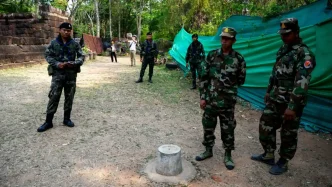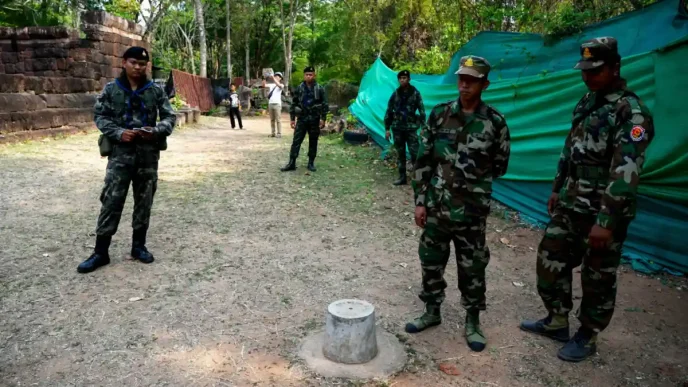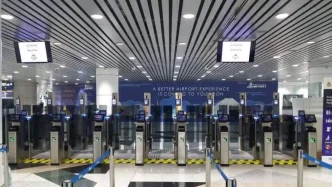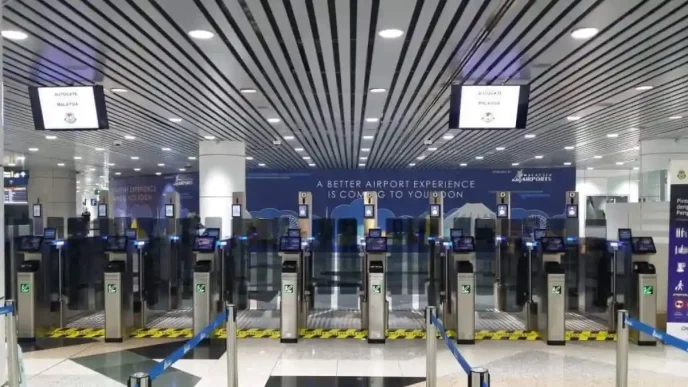Malaysia has extended an invitation to United States President Donald Trump to attend the East Asia Summit later this year, a move that underscores the country’s strategic positioning as it prepares to assume the Asean chairmanship in 2025. Prime Minister Datuk Seri Anwar Ibrahim announced the invitation following a courtesy call from US Ambassador to Malaysia Edgard D. Kagan on Tuesday evening, during which discussions also touched on bilateral ties, economic cooperation, and Malaysia’s vision for a balanced Asean agenda.
In a Facebook post on 11 March, Anwar confirmed the invitation, noting Malaysia’s intent to host President Trump at the summit, scheduled for the end of 2025. “We also touched on the Asean 2025 chairmanship, particularly the Asean-US Special Summit,” he wrote, highlighting the significance of US engagement in the region. The discussions with Ambassador Kagan also covered mutual interests in economic and technological collaboration, as well as niche areas such as halal certification—a growing sector of interest for Malaysia’s global trade ambitions.
This invitation marks a notable outreach to the US under Trump’s second presidency, recalling his attendance at the Asean Summit in 2017 during the Philippines’ chairmanship. However, Trump did not participate in subsequent summits during his first term, with US representation often delegated to senior officials such as then-Secretary of State Antony Blinken, who attended the 12th Asean-US Summit and East Asia Summit in Vientiane, Laos, in October 2024, or then-Vice President Kamala Harris, who represented the US at the 2023 summits. Whether Trump will accept Malaysia’s invitation remains uncertain, but the gesture signals Kuala Lumpur’s intent to maintain robust ties with Washington amid complex regional dynamics.
Asean 2025: Malaysia’s Balancing Act
Malaysia’s upcoming role as Asean chair in 2025 places it at the helm of a bloc navigating intricate geopolitical currents. The East Asia Summit, a key regional forum, brings together Asean’s 10 member states alongside major powers including the US, China, Russia, Japan, South Korea, India, Australia, and New Zealand. Hosting such an event offers Malaysia a platform to shape dialogue on pressing issues, from economic integration to security concerns in the South China Sea.
Foreign Minister Datuk Seri Mohamad Hasan recently articulated Malaysia’s commitment to neutrality, emphasising a balanced approach in engaging global powers. “We are trying to be balanced so that we don’t lean towards anyone,” he said last month, referencing plans for a Special Asean-US Summit alongside other engagements such as the Asean-Gulf Cooperation Council-China Summit. “Asean will continue to drive the direction as an integrated Asean and remain neutral and not take sides with anyone,” Mohamad added, reflecting a long-standing principle of non-alignment that has defined the bloc’s foreign policy since its inception in 1967.
This neutrality is particularly critical as Asean grapples with competing influences from the US and China, both of whom view South-East Asia as a vital sphere of economic and strategic interest. The US has sought to bolster its presence in the region through initiatives like the Indo-Pacific Economic Framework, while China’s Belt and Road Initiative continues to deepen infrastructure and trade ties with Asean nations. For Malaysia, chairing Asean in 2025 offers an opportunity to mediate these dynamics, ensuring the bloc remains a central player rather than a battleground for superpower rivalry.
Inviting Trump to the East Asia Summit aligns with this strategy. A US presidential presence would elevate the summit’s profile and signal Washington’s commitment to Asean, potentially counterbalancing China’s growing influence. However, analysts suggest that Trump’s attendance is far from guaranteed, given his administration’s unpredictable foreign policy stance and domestic priorities. If confirmed, his participation could reinvigorate US-Asean dialogue, particularly on trade and security, though it may also introduce volatility depending on his approach to regional issues like the South China Sea disputes.
Strengthening Malaysia-US Bilateral Ties
Beyond the symbolic weight of the summit invitation, Anwar’s discussions with Ambassador Kagan reflect a broader push to deepen Malaysia-US relations. Economic and technological cooperation emerged as focal points, building on existing frameworks such as the US-Malaysia Comprehensive Partnership established in 2014. Malaysia, a key player in the global semiconductor supply chain, stands to benefit from enhanced collaboration with US tech giants, while American firms eye opportunities in Malaysia’s burgeoning digital economy.
The mention of halal certification as a topic of discussion is particularly noteworthy. Malaysia has positioned itself as a global leader in halal standards, with its certification recognised in numerous markets. Cooperation with the US in this area could open new trade avenues, particularly for Malaysian exporters targeting Muslim consumers in North America. While specifics of the talks remain undisclosed, the inclusion of such a niche issue suggests a comprehensive approach to bilateral engagement, extending beyond traditional economic sectors.
Historically, Malaysia and the US have maintained cordial ties, though relations have occasionally been tested by differing views on issues such as human rights and regional security. During Trump’s first term, his administration’s focus on trade imbalances and tariffs created friction with several Asean nations, including Malaysia. However, Anwar’s government appears keen to reset the narrative, leveraging Malaysia’s Asean chairmanship to foster pragmatic cooperation. If successful, this could yield tangible benefits, from increased foreign direct investment to joint initiatives in emerging fields like green technology.
Regional Implications and Challenges
Malaysia’s invitation to Trump must also be viewed through the lens of broader regional dynamics. Asean’s commitment to “centrality”—the principle that the bloc should drive its own agenda rather than be swayed by external powers—remains a cornerstone of its identity. Yet, achieving consensus among member states with divergent interests is no small feat. Countries like Vietnam and the Philippines, which have maritime disputes with China, often welcome stronger US involvement as a counterweight, while others, such as Cambodia and Laos, maintain closer ties with Beijing.
For Malaysia, striking a balance will be paramount. Hosting a Special Asean-US Summit alongside other engagements, such as the Asean-Gulf Cooperation Council-China Summit, demonstrates an intent to engage all major stakeholders. However, the optics of Trump’s potential attendance at the East Asia Summit could be interpreted variably across the region. While it may reassure some allies of continued US commitment, others might view it as a tilt towards Washington, potentially complicating Malaysia’s neutrality pledge.
Moreover, the domestic context in the US adds another layer of uncertainty. With Trump’s administration likely focused on domestic economic recovery and political consolidation in 2025, foreign summits may not rank high on his agenda. His past absence from Asean events after 2017 suggests a preference for delegating such engagements to senior officials, a trend that could persist. Should Trump decline, Malaysia may need to recalibrate its expectations, ensuring that US-Asean relations remain robust through alternative channels.
Looking Ahead: Asean’s Role in a Multipolar World
As Malaysia gears up for its Asean chairmanship, the invitation to Trump serves as an early marker of its diplomatic priorities. The East Asia Summit, alongside other planned events in 2025, will test Kuala Lumpur’s ability to navigate a multipolar world where economic interdependence and geopolitical tensions coexist. Asean’s relevance hinges on its capacity to foster dialogue among diverse powers, a role Malaysia appears intent on championing.
The potential participation of a US president in the summit could inject new momentum into Asean-US ties, particularly if it leads to concrete outcomes on trade, technology, or regional stability. Yet, Malaysia must also prepare for scenarios where such high-level engagement does not materialise, ensuring that its chairmanship delivers value through inclusive and pragmatic initiatives.
For now, Anwar’s outreach to Trump reflects a calculated move to position Malaysia as a proactive player on the global stage. Whether this translates into meaningful engagement will depend on multiple factors, from Washington’s response to the broader geopolitical climate in 2025. What is clear, however, is that Malaysia’s Asean chairmanship will be a defining moment for the country and the region, with implications that extend far beyond a single summit.














